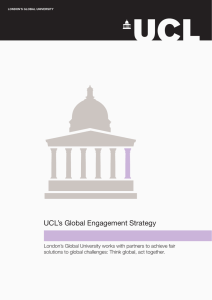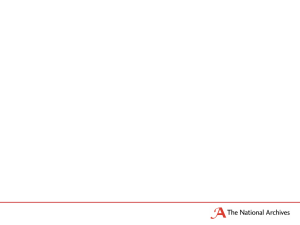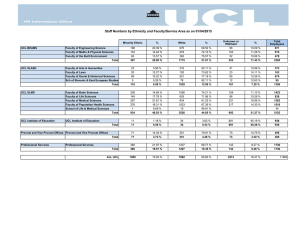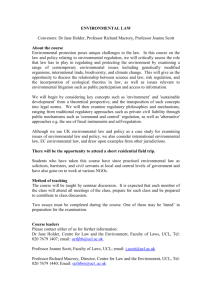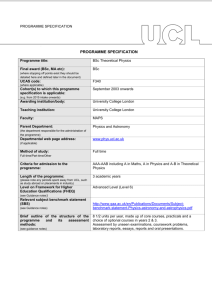Faculty oF PoPulation HealtH ScienceS /
advertisement
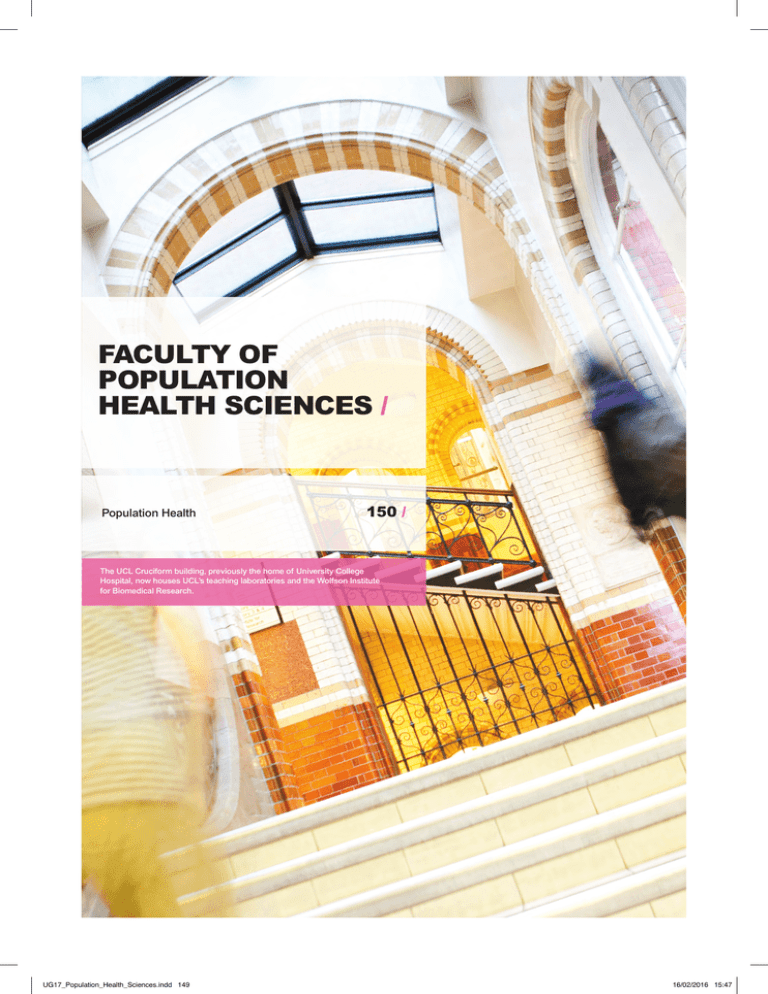
Faculty of Population Health Sciences / Population Health 150 / The UCL Cruciform building, previously the home of University College Hospital, now houses UCL’s teaching laboratories and the Wolfson Institute for Biomedical Research. UG17_Population_Health_Sciences.indd 149 16/02/2016 15:47 Population Health / www.ucl.ac.uk/prospectus/pophealth Population health studies the factors influencing health: the social and physical environment, individual behaviour, medical care and genetics. It spans the life course from birth to old age, and requires excellence in disciplines from across the health and social sciences including epidemiology, sociology, human geography, social statistics, psychology and economics. Subject overview Total intake Population Health BSc 25 (2017 entry) Applications per place 2 (2015 entry) Research Excellence Framework (REF) 81% rated 4* (‘world-leading’) or 3* (‘internationally excellent’) UCAS: 170C • 3 years A levels: AAB-ABB. No specific subjects. Standard GCSE offer (see page 31), except Mathematics or Statistics at grade A. IB Diploma: 34-36 points. A score of 16-17 points in three higher level subjects, with no score lower than 5. Other qualifications: see www.ucl.ac.uk/otherquals First career destinations (2012–2014) •The first cohort of students admitted to Population Health BSc is due to graduate in 2018. Therefore, information about career destinations for students on this programme is not yet available Contact details Dr Stephen Jivraj (Admissions Tutor) ebscpopulationhealth@ucl.ac.uk t +44 (0)20 7679 1721 The BSc in Population Health will ground you in the different social science disciplines used to study population health, preparing you for research and professional practice in the health sector and beyond. Compulsory modules in years one and two provide breadth and depth in understanding how public health and disease are measured and analysed, incorporating research methods, social theory, demographics, health behaviours and the life course. You will receive quantitative data analysis training in all years, bringing data and theory together in an applied hands-on learning environment. From year two there is an opportunity to specialise by taking optional modules to suit your interests (e.g. in health psychology, health economics), and in year three you complete a dissertation. For more information, including programme structure visit: www.ucl.ac.uk/prospectus/pophealth Faculty of Population Health Sciences UG17_Population_Health_Sciences.indd 150 16/02/2016 15:48


